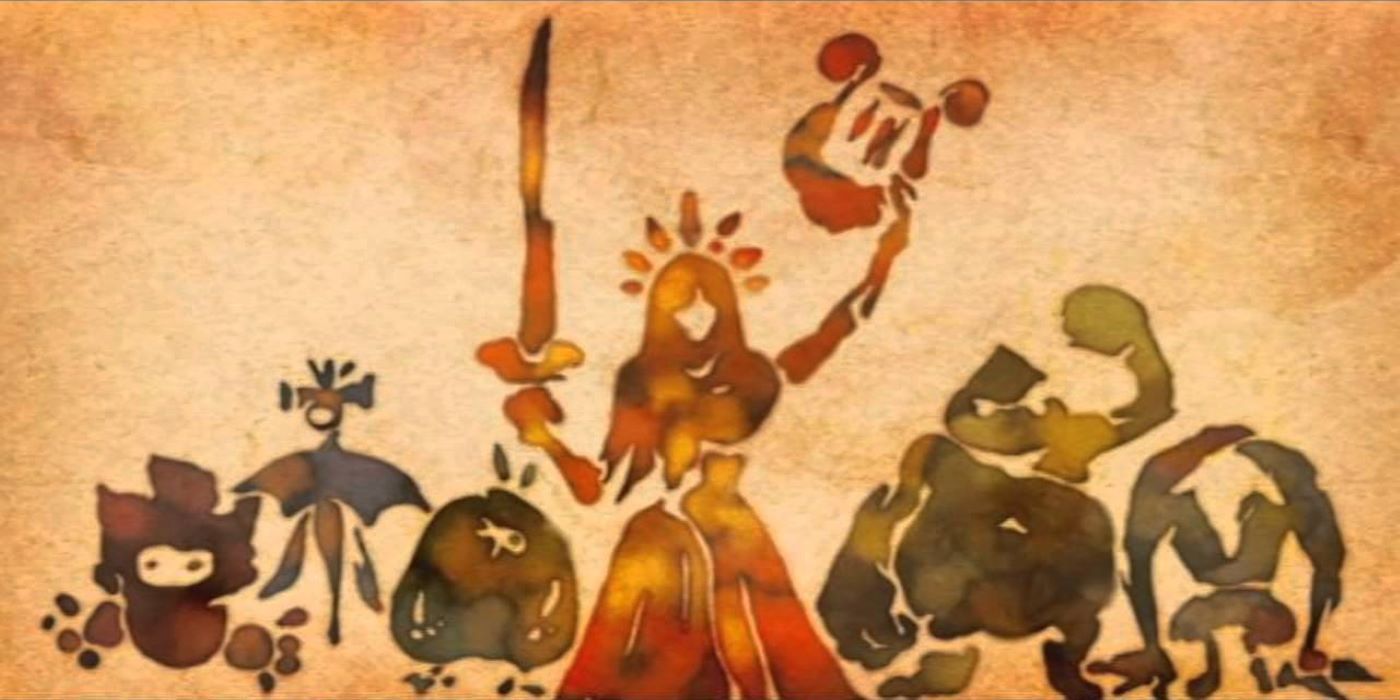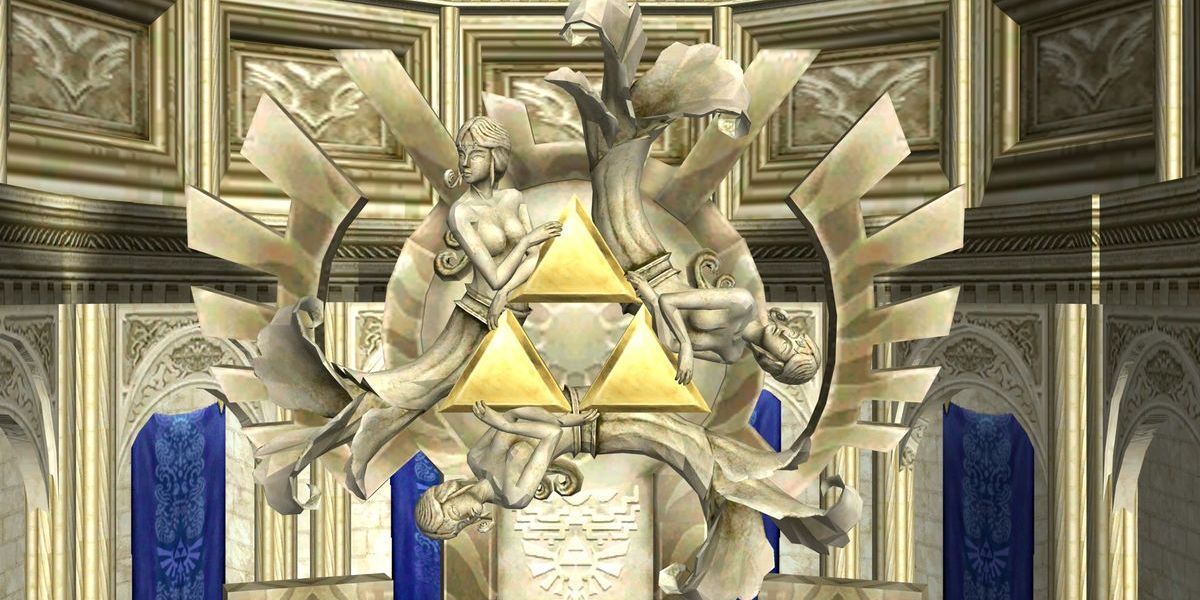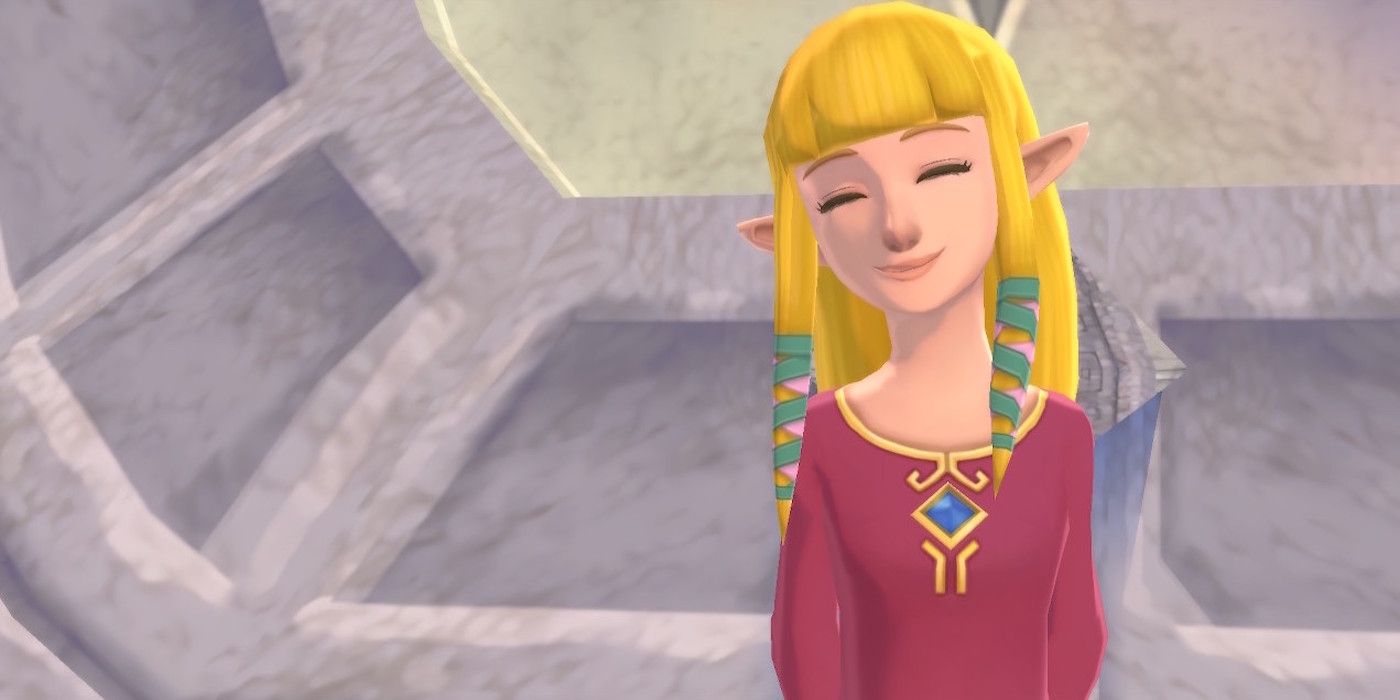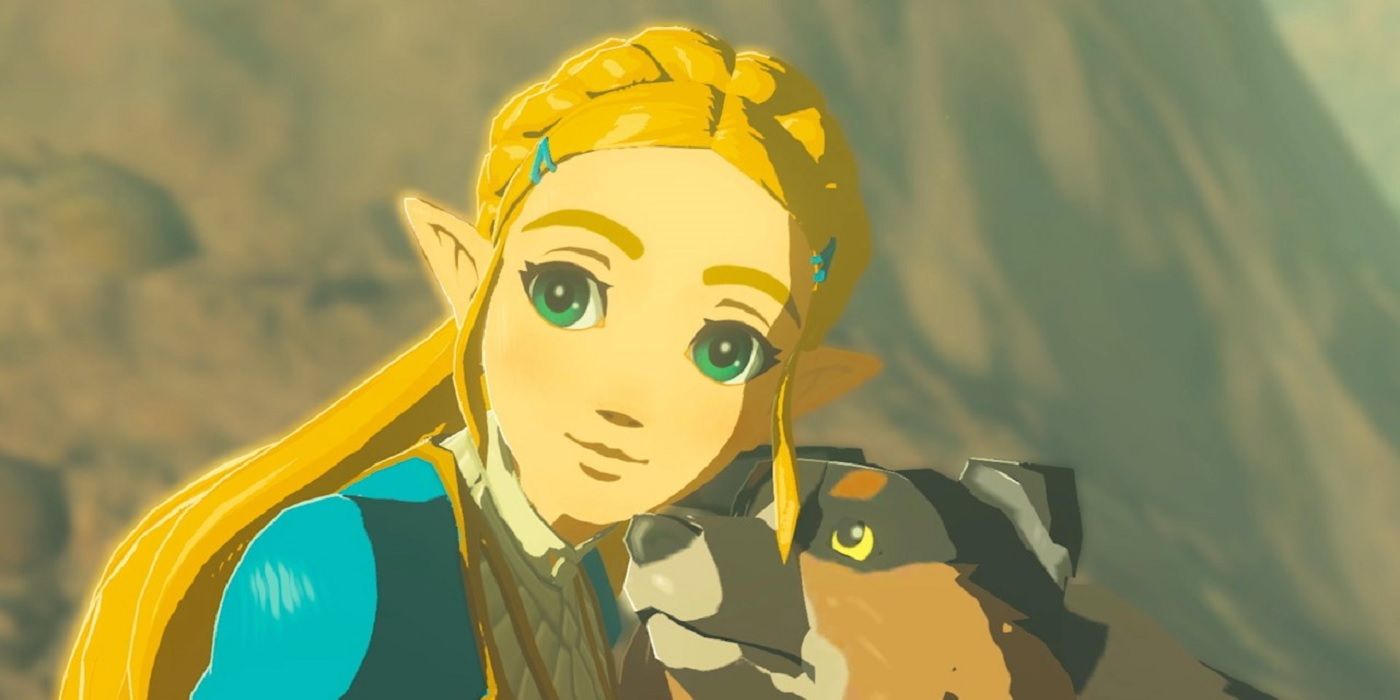
A running joke surrounding The Legend of Zelda is that it doesn't actually star Princess Zelda as the player character. Even so, Zelda is an undeniably crucial part of most games in The Legend of Zelda, appearing in very nearly every game. Zelda has had a broad range of relationships with Link. Whether she's an aloof ruler of Hyrule in Twilight Princess, a classmate and dear friend in Skyward Sword, or anything in between in other Zelda games, she always crops up in Link's adventure. That's largely because of their shared destiny as chosen champions of the goddess Hylia, a mysterious deity that pervades the Zelda franchise.
Link's relationship with Hylia has always been pretty clear: he's the chosen hero of The Legend of Zelda's goddesses, serving as a warrior for good throughout the ages. Zelda, meanwhile, has a slightly more complicated relationship with Hylia. For instance, some games in The Legend of Zelda refer to her as having 'the blood of the goddess', suggesting that she's descended from Hylia. While that is true, the exact truth is a little more complicated than that. Zelda is a different person from the goddess Hylia, but they remain closely connected throughout the series, and for good reason.
RELATED: If Demise Returns in Zelda: Breath of the Wild 2, Will Ghirahim Return Too?

The goddess Hylia's story technically starts before The Legend of Zelda's story begins. Skyward Sword's prologue explains that Hylia was left in charge of the mortal world and the Triforce after Farore, Din, and Nayru created it. The peace was disturbed when the demon king Demise and his fiendish army emerged, forcing Hylia to wage war with them. Although she won, she was greatly wounded, and she knew her seal wouldn't keep Demise locked up forever. Hylia, therefore, chose to abandon her divinity, planning to reincarnate herself as a mortal to thwart Demise with the help of her first chosen hero's successor—the Link of Skyward Sword.
This plan means that the Zelda of Skyward Sword is technically the goddess Hylia, reborn in mortal form. Zelda's true identity is a central element of Skyward Sword's plot. Impa protects Zelda as she recovers her memory of divinity, while the demon lord Ghirahim hunts Zelda down to free Demise. After the events of Skyward Sword, Zelda becomes the ancestor of the kingdom of Hylians, who take their name from the goddess that founded the kingdom and brought humans back to the surface world.
For the most part, Hylia disappears from The Legend of Zelda beyond that; Farore, Din, and Nayru play distant parts in the Zelda games, but they're much more common than Hylia. Even so, her name crops up now and again, especially in Zelda: Breath of the Wild, where she's seemingly restored to divinity. Breath of the Wild fans are well aware of the Goddess Statues where Link can pray to Hylia to expand his Life Gauge and Stamina Wheel. Hylia remains aloof for the most part in Breath of the Wild, but her statues establish something important: by this point in Zelda lore, Princess Zelda and the goddess Hylia are different people.
RELATED: The Legend of Zelda: The Difference Between Ganon and Ganondorf Explained

Although The Legend of Zelda's supplemental lore books say that the goddess Hylia gets reincarnated eternally throughout Hyrule's history, the various Zeldas scattered across the game's timeline don't appear to all be those reincarnations anymore. Again, Hylia is a very important divine figure in Skyward Sword, but she mostly exists in the background in the rest of the franchise. The first Zelda's descendants, all named for her, are often described as having divine blood but they're almost never referred to as reincarnations of Hylia.
Zelda's wide range of magical powers might suggest otherwise, but that's not quite the case. Each Zelda that carries the Triforce of Wisdom often draws a great number of magical powers from her piece of the Triforce, as well as the connection to the goddess Nayru that the piece conveys. Even beyond her piece of the Triforce, Zelda often wields a wide range of unique magical powers. This means that much of Zelda's powers are derived from The Legend of Zelda's mysterious gods, but they're not necessarily connected to the goddess Hylia specifically.
Zelda: Breath of the Wild seems to best define how the goddess Hylia and Princess Zelda are different people. Aside from the Goddess Statues where Link communes with Hylia, Breath of the Wild's various Shrines contain monks devoted to Hylia who frequently mention the goddess by name when Link completes their trials. These tributes to the goddess are never directed at Princess Zelda; in fact, Breath of the Wild's Zelda seems much less magically powerful than several previous Zeldas, albeit no less driven and intelligent. It seems that Hylia has broken her reincarnation cycle by Breath of the Wild, returning to divinity and establishing Zelda as her descendant, but not her mortal form.

Nintendo deserves a lot of credit for making The Legend of Zelda's lore as rich as it is. Every game adds a new perspective on the land of Hyrule, its mystical forces, and how their influence on Hyrule changes across generations of heroes. Those heroes frequently change, too. Princess Zelda has seen many alternate forms in games like Ocarina of Time and The Wind Waker, wearing unique new hats in addition to her identity as Hyrule's greatest channel of divine influence.
Zelda may not literally be the goddess Hylia anymore, but that doesn't mean Hylia's influence isn't felt anymore. Thanks to the machinations that Hylia put in place before Skyward Sword began, the first Princess Zelda and all of her descendants played important roles in protecting the kingdom with the help of the Triforce of Wisdom. Every Zelda still bears important powers and responsibilities placed upon her as the heir to Hylia's powers and plans. In that sense, she's the constant metaphorical reincarnation of Hylia's struggles against evil, even if she's not literally Hylia herself. There's clearly no end to the Zelda lore that Nintendo can expand and flesh out over the course of the franchise, especially through these important characters. Hopefully, Hylia and Zelda both play influential roles in Breath of the Wild 2.
The Legend of Zelda: Skyward Sword HD is available now for Switch.

